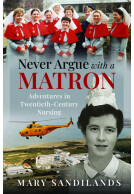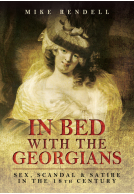James Chuter Ede: Humane Reformer and Politician (Hardback)
Liberal and Labour Traditions
Imprint: Pen & Sword History
Pages: 352
Illustrations: 16 black and white illustrations
ISBN: 9781526783721
Published: 5th March 2021
(click here for international delivery rates)
Order within the next 11 hours, 5 minutes to get your order processed the next working day!
Need a currency converter? Check XE.com for live rates
James Chuter Ede (1882-1965) served the longest term of office as Home Secretary in the last 200 years, three weeks more than Theresa May. He is the only senior member of Attlee's legendary 1945 cabinet not yet to have found a biographer. His contribution to that government - and in Robert Harris's words, 'We still live in the society shaped by Clement Attlee' - although largely unsung, was immense. Alongside towering achievements such as Bevan's NHS, his own measures, in administrative, legal and social reform, did much to set the seal on Labour's reforming programme, including the Criminal Justice Act 1948, paving the way for the abolition of capital punishment. Previously, working with RA Butler, he provided a major contribution to the Education Act 1944. Equally interesting for historians and readers of history is how Ede's life and career present a political, cultural and social account, in his journey from Victorian family life with a Liberal background, through Cambridge and the Unitarian religion, to Labour politics, working in education and local government. He represented suburban Mitcham and then industrial South Shields in Parliament, where his performances were legendary in an age of oratory - low-key, yet cutting and decisive. This will be an important contribution to the burgeoning interest in the historiography of post World War II Labour Britain.
"The book will be of interest to different readers... James Chuter Ede should receive greater attention as a politician who ‘got things done’ as Hart’s biography shows in so many ways."
Faith and Freedom - A Journal of Progressive Religion Published at Harris Manchester College, Oxford, England - Autumn and Winter 2023, Number 197
As mentioned by the Open Spaces Society for the Seventy-fifth Anniversary of the Home Secretary's Stepping Stones:'The only biography of him is James Chuter Ede, Humane Reformer and Politician by Stephen Hart' (Pen & Sword, 2021.)
The Open Spaces Society
As featured in
Worcester News
As featured in
Malvern Gazette 21/05.21
'Stephen Hart deserves great credit for this detailed and comprehensive account of one of the great post-war cabinet ministers. He has written
Lord Clark of Windermere for 'The House' magazine
with style to make his book an easy and enjoyable read. He should be commended for bringing Chuter Ede’s life and work to wider attention.'
What a great change to read a book about a politician that hasn’t been done to death. Chuter Ede was very much a hidden personality in the Labour government of the 40’s but a man who achieved a lot but was overshadowed by other political personalities of the time. Like all political books about leading personalities, this book is pretty much detailed and comprehensive in its telling and details, pretty much covering his whole career. This book looks at various things Chuter Ede worked on and achieved through his career such as working as part of Labour and with Liberals, ending capital punishment, the new NHS Health System, education and his role as Home Secretary. Although I had heard and read about him before this book is very comprehensive in its detail, which turns it into a very informative volume. I really enjoyed this book which is very well written by the author Stephen Hart who writes in a very concise and detailed way. For any up and coming political students into politics, I would definitely recommend this book as an excellent figure in the background who actually achieved quite a bit.
UK Historian
5 stars
Read the full review here
THE UNSUNG ENGINEER OF BRITAIN'S MID-20TH CENTURY REFORMS
David Emanuel
Let me first disclose that I know the author personally. We were both students at Christ's College Cambridge (the same college that Ede went to) fifty years ago. As an aside we were also both on the college team that went to the finals of University Challenge in 1970. Aside from that, we have very little in common. I was a computer scientist and economist who drifted over to the USA and the author went into the legal profession. I was intrigued when I discovered that Stephen had written a biography of a politician that I had never heard of. (That may not be all that surprising. It was only recently that I discovered the name of Spencer Perceval - someone who actually became prime minister and had the distinction of being assassinated.)
The author has lovingly and painstakingly researched and crafted this detailed biography of James Chuter Ede. The narrative progresses from his origin in the Surrey town of Epsom (Yes that's where Epsom salts come from. Surrey is also the birthplace of the author and this reviewer resided there for part of his childhood.), through his childhood and schooldays and early training as a teacher.
He enjoyed a game of cricket and had modest military experience as a "Terrier" (Territorial Army) before obtaining admission to Christs College as a pensioner. Unfortunately, he did not receive sufficient financial aid to complete his degree. (As a former scholar at Christs, I can testify to the fact that college financial support alone fell far short of that needed by an undergraduate no matter how exalted one's academic qualifications.)
After his Cambridge experience, Ede returned to the teaching profession in Surrey while simultaneously dabbling in council affairs as a member of the Liberal party. I should point out that, in the early 20th century, the Liberal party was one of the major parties of government prior to its gradual collapse into near irrelevance. Ede shared his early Liberal dalliance with Winston Churchill, although they surely were on opposite sides within the party. It appears that Ede's political philosophy was forged by welding together his nonconformist Unitarian religious background with his experience as a teacher.
World War One came and went and Ede signed up as an NCO for the East Surreys and later as a Royal Engineer. This war and the second leg 25 years later essentially broke up the British Empire and dislodged Britain as a predominant military power. It also triggered an inevitable progression of Britain from a country governed by the propertied gentry to a much more egalitarian mix of hoi polloi.
Riding this wave, Ede came out of the war shortly after getting married to Lilian Williams and soon progressed to parliamentary politics standing as a candidate for the Labour party - the Liberal party having started to be eclipsed.
It too a few tries before Ede was first elected as MP for Mitcham. In the intervening years, it seems that he had received financial support via a combination of his teachers' union activity, local government and also what appears to have been a sinecure from a Surrey council.
Ede's early years as an MP mostly revolved around his lifelong interest in education at all levels. Along the way, he narrowly lost his Mitcham seat and replaced it a few years later as the MP for South Shields in County Durham. At the time, the area was heavily involved in coal mining and steel making (I should know that as I spent some time working at a coke oven in the same area.) Aside from that, the area generally was typical as a driver of the growth of the Labour party and the beneficiary of Ede's lifelong quest to make good education universally available to the masses. In that respect, moving his political seat from Surrey to County Durham was surely the right career move.
If I may speed along, most of Ede's career prior to the Second World War was spent either out of office or in opposition. This all changed with coming of the war and the formation of a coalition government. I think that Ede had by then been noticed by Churchill and MacDonald as a solid team player and one who was willing to put in the long hard hours to get things done in parliament. He was appointed to the Board of Education and was soon joined by R.A.B. Butler. Butler was his boss but was clearly delighted to have Ede and his education experience to do most of the heavy lifting. While the war obviously needed to be fought, children still needed to be educated (often while removed far away from their homes) and there was still the need to overhaul and democratize the school system at all levels - without shattering the existing edifice beyond all recognition.
The partnership between the Labour MP Ede and the Conservative Butler turned out to be very productive and apparently harmonious for the entire life of the coalition government.
Britain loved Churchill as an inspirational leader and warlord but winning the war finally put the kibosh on government by and for the aristocracy. Right after the war, the Labour party was swept into power. While Ede expected some ministerial post related to education, Attlee valued his administrative skills so highly that he placed him in the position of Home Secretary.
As Home Secretary, Ede was not exactly in the limelight as Labour implemented the many social and economic reforms that defined the post-war period. Still, he was in a position of great power, although he was not one to stand on ceremony and grandstand. Instead, he had to shepherd the affairs of state that were in his bailiwick.
These included upholding the legal system, including diligently reviewing and having the final say on every death sentence and execution. One of these was Timothy Evans, who was convicted of murdering his daughter (and implicitly his wife) primarily on the testimony of reserve constable John Reginald Halliday Christie who resided in the same house at 10 Rillington Place (just off Ladbroke Grove and subsequently renamed Rushton Place). With an apparently airtight case and reliable testimony, Evans received a death sentence and Ede duly upheld the penalty and execution.
As many people know, Christie was later found to have murdered several women and concealed their bodies in the fabric of 10 Rillington Place. He was subsequently executed. Over the years, many sophists have argued that Evans was still guilty but sheer common sense (not to mention that the damning witness was a serial killer) plainly vindicates Evans. It took decades before he belatedly had his conviction expunged.
As a nonconformist, not too far removed from the Quakers, one might have expected Ede to be an opponent of capital punishment and maybe he secretly was. Still, this all happened in the aftermath of a horrendous war. Also, Ede took his assignments seriously and would not have judged an execution based solely on his personal preference.
As you may have noticed, the day to day detail of political history has never been my favorite subject. However as I have aged I must admit to having surprisingly learned rather a lot about all kinds of history.
Reading and reviewing a biography of someone unknown to me should have been something I passed on. However, I have to say that Stephen Hart's energetic and lively writing style kept me interested in the subject. What we have is a carefully crafted and detailed picture of someone that we might find rather rare today - specifically a modest, decent caring politician. Ede seems to have been someone I would have enjoyed having a beer with - except he did not drink (maybe he could have a Britvic while I downed a few pints of Vaux.)
About Stephen Hart
STEPHEN HART obtained his PhD at Aston University, and followed a successful career as a solicitor specialising in commercial law. He shares some of his subject's experience, coming from suburban Surrey and studying at the same Cambridge College - Christ's - for which he wrote the page on Ede in its Distinguished Members website. He has also been involved in Labour Party politics, as local councillor and in Parliamentary elections.














